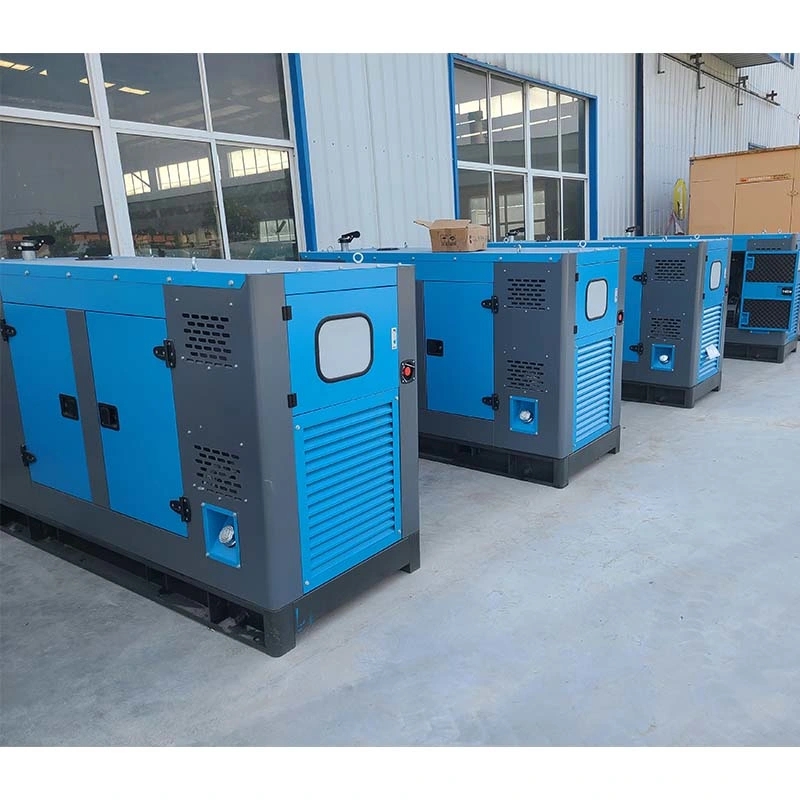Introduction
Diesel generators have long been the go-to solution for providing reliable power in situations where a stable electricity supply is not available. They are commonly used in remote locations, construction sites, events, and as backup power sources for critical infrastructure. One of the key challenges faced when using diesel generators is the variability of load demands. As the power requirements fluctuate, it is essential to optimize the operation of diesel generators to ensure efficiency, reliability, and cost-effectiveness. In this article, we will explore the factors affecting diesel generator performance under variable load demands and discuss strategies for optimizing their operation.
Understanding Variable Load Demands
Variable load demands refer to the fluctuating power requirements that diesel generators need to cater to. In real-world applications, the load on a generator can vary significantly based on factors such as the number of appliances connected, their power ratings, and the duration of operation. For example, a construction site may experience peak load demands during specific times of the day when multiple power tools are in use simultaneously, while the load may decrease during breaks or off-peak hours.
The performance of a diesel generator under variable load demands is influenced by several factors, including the generator's capacity, efficiency, and response time. Inefficient operation can result in increased fuel consumption, higher maintenance costs, and reduced overall lifespan of the generator. Therefore, it is crucial to implement strategies to optimize the operation of diesel generators for variable load demands.
Factors Affecting Diesel Generator Performance
1. Generator Sizing: Properly sizing a diesel generator is essential to ensure optimal performance under variable load demands. An undersized generator may struggle to meet peak load requirements, leading to voltage fluctuations and potential equipment damage. Conversely, an oversized generator may operate at a low load most of the time, resulting in inefficiency and increased fuel consumption.
2. Fuel Efficiency: Diesel generators are known for their fuel efficiency compared to other types of generators. However, under variable load demands, the generator's fuel consumption can vary significantly. Operating a generator at partial load for extended periods can reduce its overall efficiency and increase fuel costs. Implementing load management strategies can help optimize fuel efficiency and reduce operating expenses.
3. Response Time: The response time of a diesel generator refers to how quickly it can adjust its output to match changes in load demand. A generator with a slow response time may struggle to maintain stable voltage and frequency under varying loads, leading to power quality issues. Ensuring that the generator has a fast response time is crucial for reliable operation in dynamic load conditions.
4. Maintenance and Monitoring: Regular maintenance and monitoring are essential for ensuring the optimal performance of a diesel generator. Periodic inspections, oil changes, filter replacements, and load testing can help identify potential issues before they escalate and contribute to downtime. Monitoring the generator's performance metrics, such as fuel consumption, load profile, and operating hours, can provide valuable insights for improving efficiency and reliability.
Optimization Strategies for Diesel Generators
1. Load Management: Implementing a load management strategy is a key step in optimizing a diesel generator for variable load demands. By prioritizing critical loads and staggering the operation of non-essential equipment, you can reduce peak loads and minimize stress on the generator. Using load shedding devices or intelligent controllers can help automate the process of adjusting loads based on priority levels.
2. Parallel Operation: In situations where a single diesel generator may struggle to meet peak load demands, parallel operation can be a cost-effective solution. By connecting multiple generators in parallel, you can distribute the load more evenly and increase overall capacity. Implementing 200kw diesel generator for commercial buildings is crucial to ensure that the generators operate in harmony and share the load effectively.

3. Variable Speed Operation: Some modern diesel generators are equipped with variable speed control systems that adjust the engine speed based on the load demand. This feature allows the generator to operate more efficiently at partial loads by matching the engine speed to the required output. Variable speed operation can help reduce fuel consumption, emissions, and noise levels while maintaining stable power quality.
4. Energy Storage Integration: Integrating energy storage systems, such as batteries or capacitors, with a diesel generator can help improve overall performance under variable load demands. Energy storage devices can store excess energy during low load periods and release it during peak demand, reducing the strain on the generator and enhancing efficiency. Hybrid systems combining diesel generators with renewable energy sources and energy storage offer a sustainable solution for meeting dynamic power requirements.
5. Remote Monitoring and Control: Leveraging remote monitoring and control technologies allows operators to track the performance of diesel generators in real-time and make adjustments as needed. Remote monitoring systems can provide insights into fuel consumption, load profiles, maintenance schedules, and alarm notifications, enabling proactive management of the generator fleet. By implementing remote control capabilities, operators can remotely start, stop, and adjust generator settings to optimize performance and respond to changing load demands.
Conclusion
Optimizing diesel generators for variable load demands requires a comprehensive understanding of the factors affecting generator performance and the implementation of effective strategies to enhance efficiency, reliability, and cost-effectiveness. By properly sizing the generator, prioritizing load management, leveraging advanced control systems, and integrating energy storage solutions, operators can ensure that diesel generators operate optimally under dynamic load conditions. Continuous monitoring, maintenance, and optimization are essential for maximizing the lifespan and performance of diesel generators in diverse applications. In an ever-changing energy landscape, diesel generators remain a versatile and reliable power source, and by adopting innovative approaches, they can continue to meet the evolving demands of modern power systems.
